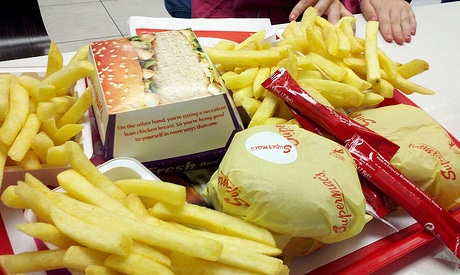
Obesity is almost an epidemic in the U.S. Over a third of all American adults are obese, according to the Centers for Disease Control and Prevention. A study recently published in the journal Science might just point the way to developing personalized probiotics and diet for treating and preventing obesity. The researchers conducting a study on mice found that those who received gut bacteria from obese humans gained more weight and accumulated more fat than mice given gut bacteria from lean humans. They took microbes from the guts of human fraternal and identical twins, and put them in the guts of mice. One of the twins was obese and one lean. The mice had been raised under sterile conditions and didn’t have bacteria of their own.
The researchers found that the gut bacteria from obese humans caused metabolic changes associated with obese humans. The mice that received the bacteria from the obese twins gained more fat than the ones that received bacteria from the lean twins. “This wasn't attributable to differences in the amount of food they consumed, so there was something in the microbiota that was able to transmit this trait,” said Jeffrey Gordon, director for the Center of Genome Sciences and Systems Biology at Washington University School of Medicine and a co-author of the study.Read more about childhood obesity
They housed the lean mice with the obese mice, since mice have a habit of consuming feces. What they found is that after the mice were housed together for 10 days, the obese mice became leaner, but the lean mice did not become obese. The researchers then created diets for the mice that were similar to modern American diets. One diet was high in fiber and low in saturated fats, and the other diet was low in fiber and high in saturated fats. The researchers again housed the obese mice with the lean mice. They found that when the mice ate the healthier diet, the results were the same as they were in the first experiment. However, when the mice were given the unhealthy diet, the obese mice stayed obese.
“These results reveal that transmissible and modifiable interactions between diet and microbiota influence host biology,” the study concluded.
Gordon said that in the future “the nutritional value and the effects of food will involve significant consideration of our microbiota-and developing healthy, nutritious foods will be done from the inside-out, not just the outside-in."
Photo Credit: iatraveler










